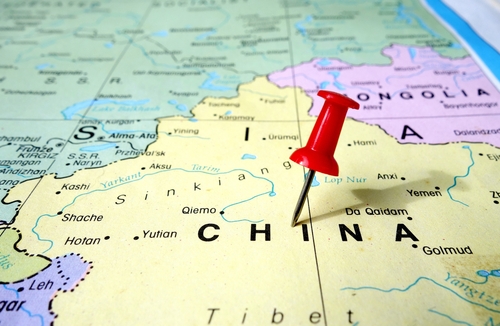China’s zero-tolerance for COVID-19 and stringent border control continue to have serious consequences for crews and ships calling at the country’s ports – particularly if crew members have tested positive for COVID-19, highlights the Gard Club.
In a recent article published in Club’s website, featuring valuable information on the COVID-19 situation in Chinese ports from Wang Jing & Co. and Oasis P&I, the Gard mentions that according to China’s State Council notice, a set of joint COVID-19 prevention and control mechanisms applicable in all Chinese regions have been announced. The purpose of their implementation is to maintain the shipping supply chain and the rights of crew members.
We strongly recommend that masters, well in advance of arriving at any Chinese port, seek guidance from local port authorities and ships’ agents on any restrictions and other preventive measures currently in force.
…warns the Gard P&I Club.
Furthermore, ship operators are encouraged to closely follow the development of the outbreak and the areas affected by COVID-19 at any given time in addition to continuing to promote vaccinations and compliance with proven health measures such as the use of masks, physical distancing and hand hygiene. They should also review their crew change management plans and implement all relevant recommendations set out in the revised IMO supported protocols for crew changes and travel and to supply their fleet with COVID-19 testing kits as extra assurance for port authorities.
For ships with COVID-19 positive crew cases in, or bound for, Chinese ports, the Club provides the following advice:
#1 Maintain supporting evidence on how the ship’s COVID-19 prevention plans have been executed and implemented onboard.
If a crew change takes place at the last port of call, or within 14 days before arrival at Chinese ports, the joining crew should take PCR tests within three days prior to boarding and carry documents showing negative test results of COVID-19, from institutions designated or recognized by Chinese embassies and consulates.
#2 Verify in advance of arranging the ship’s entry to a Chinese port, the local policies regarding handling of COVID-19 positive cases onboard.
To avoid delays or excessive additional costs, operators may also consider skipping a port of call or repatriating the sick crew member at a different port.
#3 Appoint a local correspondent/lawyer at an early stage.
In addition to obtaining the information and estimates recommended above, it is also helpful to appoint Gard’s local correspondent or a local lawyer to obtain a better assessment of the situation in Chinese ports and to scrutinize the reasonableness of the expenses incurred.
#4 Appoint agents on behalf of the Member to deal with the COVID-19 situation.
Operators may consider co-appointing an agent with the charterer, or appointing a protective agent on their own behalf, to defend their interests in dealing with the vessel’s entry and departure. It is best to do this early on, as a change of local agent is usually not possible once initial contact has been made by an agent with local authorities regarding the case.
#5 Request that any money paid shall be an advance payment which shall be subject to Members’ future approval following a review of supporting documents.
Operators are recommended to reach an agreement with the agents that any money paid to them is not a final settlement but rather an advance payment or cash deposit which shall be subject to further supporting documents, including but not limited to final bills, valid tax invoices, and proof of payment.
#6 Seek help from other officials
It is also worth noting that the Chinese Ministry of Transport recently announced the establishment of a special working group that can be contacted for assistance when encountering crew change problems in Chinese ports (Phone: +86 10 65299809 / Email: [email protected]), the Gard mentions.






























































